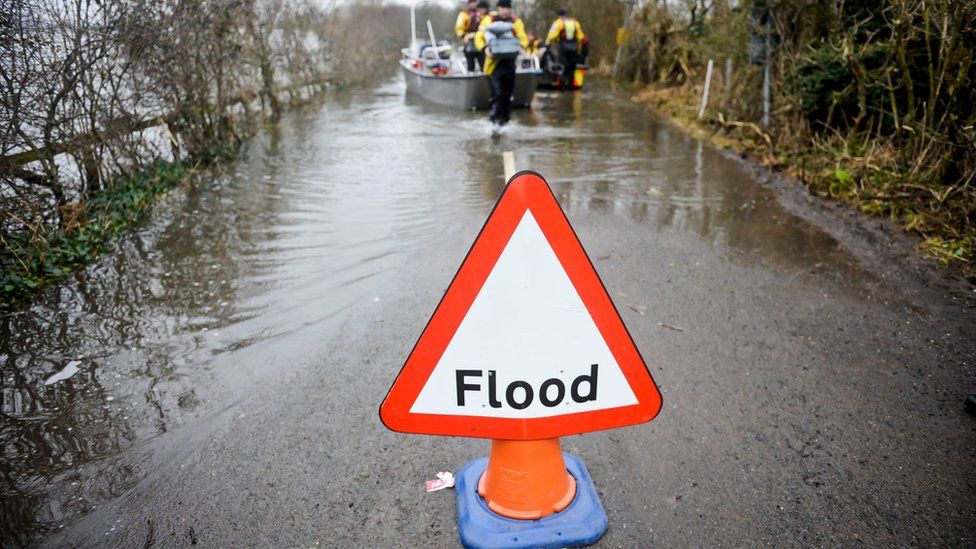Government axes climate department
- Published

The government has axed the Department of Energy and Climate Change (Decc) in a major departmental shake-up.
The brief will be folded into an expanded Department of Business, Energy and Industrial Strategy under Greg Clark.
Ed Miliband, the former energy and climate secretary under Labour, called the move "plain stupid".
It comes at a time when campaigners are urging the government to ratify the Paris climate change deal.
In his statement, Mr Clark appeared keen to calm concerns about the priority given to tackling global warming.
He said: "I am thrilled to have been appointed to lead this new department charged with delivering a comprehensive industrial strategy, leading Government's relationship with business, furthering our world-class science base, delivering affordable, clean energy and tackling climate change."
Meanwhile, Andrea Leadsom, who ran against Theresa May for the Conservative leadership, is the new Environment Secretary.
Ms Leadsom succeeds Liz Truss, who is taking over as Secretary of State for Justice after a two-year tenure at the Department of Environment, Food and Rural Affairs (Defra).
One of the most pressing items on the environment agenda is the ratification of the Paris climate deal, which was inked last year.
Analysis - Roger Harrabin, Environment Analyst
The climate "sceptic" group Global Warming Policy Forum has long demanded the demise of Decc, so alarm bells are ringing loudly for some green groups.
But in truth, the decision to subsume Decc into an expanded business department could be read as either a positive move for climate policy, or a negative one.
The Green Party and Friends of the Earth, for instance, see the move as potentially a major downgrade for climate as a government priority.
Decc has made the UK a world leader in climate policy, and scrapping the department removes the words "climate change" from the title of any department. Out of sight, out of mind, in the basement, perhaps.
But here's an opposite scenario: the UK is already bound by its Climate Change Act to step-by-step cuts in greenhouse gases through to 2050.
The new Defra Secretary Andrea Leadsom has re-iterated that there will be no deviation from long-term carbon targets.
Greg Clark, the man in charge of the expanded department, was a Shadow Minister for Energy and Climate and has written papers on achieving a Low Carbon Economy.
If you really intend climate change to drive an industrial transformation, why not embrace it within a powerful department that's developing the sort of industrial strategy needed to forge a genuine Low Carbon economy?
Mr Clark's opening remarks suggest this may be the case. But the department faces formidable problems getting the UK on track with its long-term carbon-cutting ambitions.
Decisions on Hinkley Point nuclear station and the government's Low Carbon strategy due later this year will offer genuine pointers to the significance of the death of Decc.
Labour's former leader and one-time climate secretary Ed Miliband has been among those urging the government the agreement as soon as possible.
Although the UK has signed up, it needs to formally join the agreement with a communication to the UN.
Mr Miliband had been concerned that "climate sceptics" might try to derail the deal if they gain positions of power in the new administration.
On the changes at DECC, he tweeted: "Abolition just plain stupid. Climate not even mentioned in new dept. title. Matters because depts shape priorities shape outcomes."
Friends of the Earth chief executive Craig Bennett described the news as "shocking".
"Less than a day into the job and it appears that the new Prime Minister has already downgraded action to tackle climate change, one of the biggest threats we face," he said.
"If Theresa May supports strong action on climate change, as she's previously said, it's essential that this is made a top priority for the new business and energy department and across government."
However, David Nussbaum, chief executive of WWF-UK, commented: "The new Department for Business, Energy, and Industrial Strategy can be a real powerhouse for change, joining up Whitehall teams to progress the resilient, sustainable, and low carbon infrastructure that we urgently need."
Dr Benny Peiser, director of the Global Warming Policy Forum (GWPF), said: "Moving energy policy to the new Department for Business, Energy and Industrial Strategy should give ministers a fresh impetus to ensure that the costs for consumers and businesses are driven down, not pushed further up."
One pressing item in Mr Clark's in-tray is the possible effect leaving the EU could have on the £18bn Hinkley Point nuclear power station project.
French energy giant EDF is a key investor in the project and there are concerns that the uncertainty over Brexit could undermine its commitment.
Speaking earlier, Angus Brendan MacNeil, chair of the Commons energy and climate select committee, has pointed out that pre-referendum, "EDF was investing in another EU member state". Now, he added, "that is no longer the case". However, EDF officials have said they remain committed to the project.
There will also be big changes to the way farming operates - something for Ms Leadsom's in-tray at Defra. The impact on food prices and the effects of losing direct subsidies are among the questions the department will need to address.
Follow Paul on Twitter.